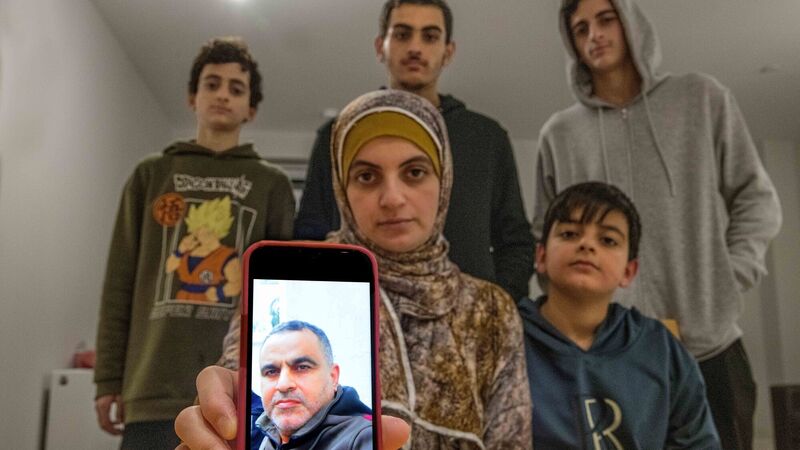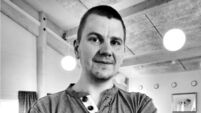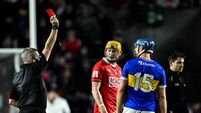Irish and Palestinian: 'We had to walk through hell to get out and my father is still trapped'

Batoul Hania — pictured with her sons Mazen, Ismael, Ahmed, and Nour Mohamed — shows a phone photo of her husband Zak, who was not permitted to cross the border from Gaza into Egypt, despite being an Irish citizen. Picture: Moya Nolan
He is the teenager who touched the hearts of many when he arrived at Dublin Airport from war-torn Gaza last month.
Gripped with fear, Mazen Hania held onto his young siblings and mother with nothing but the clothes on his back.













